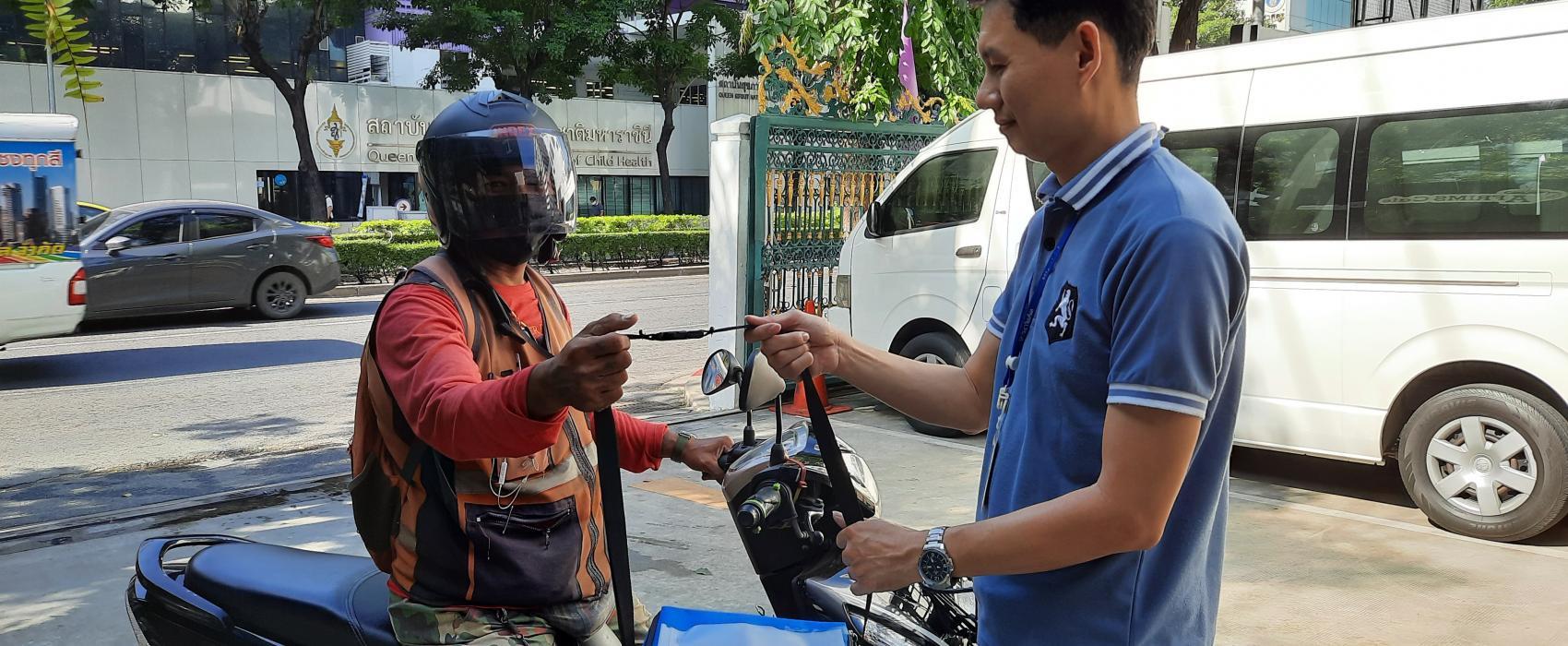MHRP’s researchers at the Armed Forces Research Institute of Medical Sciences (AFRIMS) in Bangkok, Thailand have the unique capability to interrogate the impact of HIV on mucosal surfaces. This research directly translates into supporting MHRP’s product development in the context of prophylactic vaccines as well as in cure studies.
Through a long-term partnership with the Thai Red Cross AIDS Research Centre (TRCARC) and the South East Asia Research Collaboration in HIV (SEARCH), our Cellular and Mucosal Immunology Laboratory (CMIL) at AFRIMS, led by Dr. Alexandra Schuetz, receives fresh mucosal samples via a speedy motorcycle courier, who makes the trip from the TRC to AFRIMS in under 20 minutes. “Traffic jams in BKK are horrendous and on a bad day it takes 1-2 hours by car to bring fresh specimens from the clinic to the lab. However, since mucosal specimens are very sensitive, we need to start working with those samples within 30 minutes of collection. We are working with a specially trained motorcycle driver, K. Somboon, who safely, securely and quickly transports those valuable specimens to the lab” said Dr. Schuetz.
This research on mucosal samples is unique and also critical, as most of the HIV transmission occurs across mucosal barriers. This work contributes to two main pillars of MHRP research goals as a better understanding of the impact of HIV on mucosal surfaces is relevant for the development of 1) preventive HIV vaccines, since relying solely on systemic responses might not be adequate, and 2) therapeutic remission strategies, for which a better understanding of the HIV tissue reservoir is imperative.
This research is part of the landmark RV254/SEARCH 010 study, through which we identify acutely infected individuals at the TRCARC and place them onto ART immediately. According to Dr. Eugene Kroon, Research Physician at SEARCH, “Many of our committed volunteers agree to extensive sample collection to help aid the research effort to find a vaccine and a cure.” These include samples from colon/rectal, female genital tract, lymph node and other lymphoid tissues, and even cerebral spinal fluid. Dr. Schuetz’s lab has extended this research into RV144 follow-up trials exploring vaccine-induced mucosal responses that could potentially contribute to protection through prophylactic vaccines.
Dr. Schuetz and her team at AFRIMS have shared their research results at multiple international and national conference and have published multiple papers. Together with these dedicated volunteers in Thailand, they are helping inform key HIV research to move us closer towards a more effective vaccine and potential cure.
